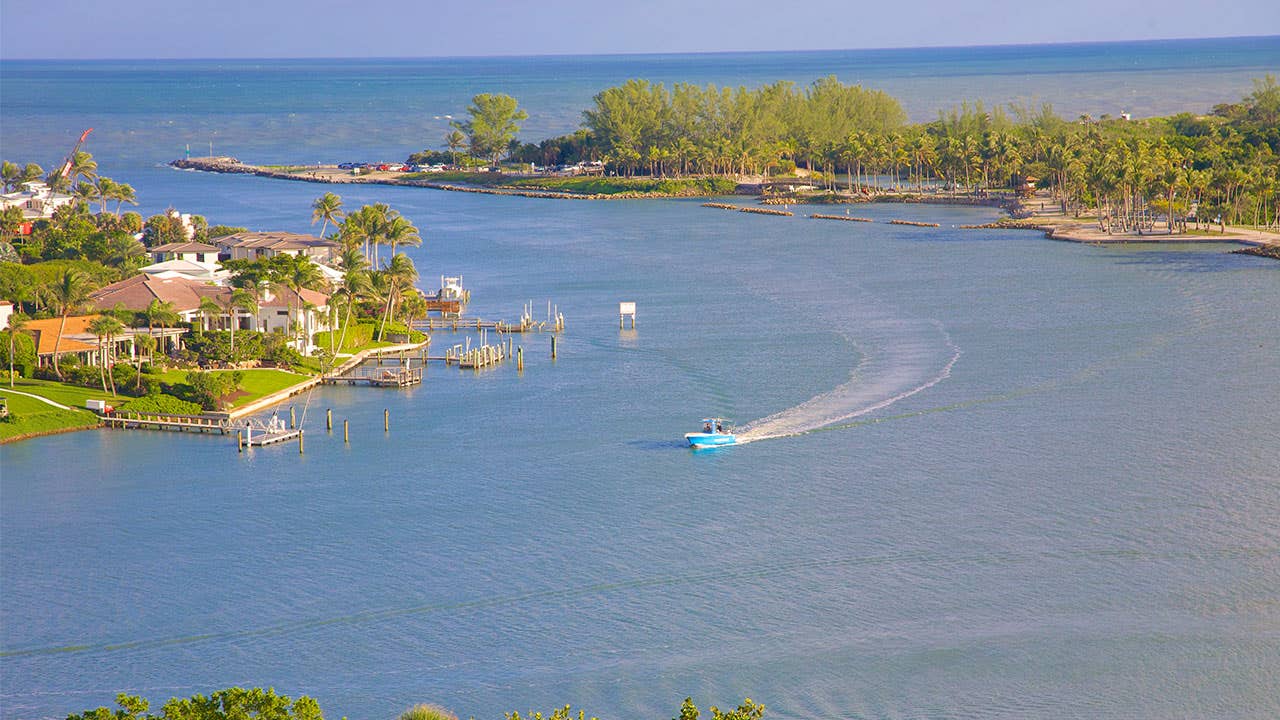The pros and cons of buying a waterfront home




Buying a property with stunning views of the ocean or a beautiful lake is a dream for many. But a slice of paradise comes with costs that can be difficult to anticipate or plan for. Here are some of the upsides and downsides of purchasing a home that’s set right on the water.
Buying a waterfront home
There are a few factors to weigh when considering a waterfront home that aren’t an issue when you buy a landlocked home.
Location is important regardless of where you buy, of course, but it becomes more specific when searching for waterfront property. If you’re buying a home on a barrier island, for example, you’ll need to consider your evacuation plan and how you’ll maintain a generator and sufficient fuel for emergencies.
Likewise, “some boaters are interested in deep-water fishing while others are interested in off-shore fishing near their home or going to waterside restaurants,” says Penny Lehmann, a real estate agent with Coldwell Banker in southwest Florida. “Therefore, the distance to the channel and length of a cruise to the destination is something important to consider.”
You’ll also need to remember that the purchase price of the waterfront property is only the beginning. There are many other costs that come into play. For instance, you’ll need to research homeowners insurance costs. And if the property is in a flood zone, that will add to your expenses. Special maintenance that’s necessary for waterfront homes could also be costly.
Finally, don’t underestimate how much you could wind up spending on outdoor furniture and other extras to enhance your enjoyment of your waterfront home. Plan on spending a tidy sum for furniture and accessories that let you soak up the fresh air and views, plus water toys such as kayaks, surfboards or even jet skis.
Waterfront home pros
Waterfront properties are highly desirable for a multitude of reasons. Who could argue that living on the water isn’t a relaxing, uplifting experience?
“Anyone who has sat on a beach or stayed in a waterfront house can attest to the near medicinal effects of the sound of lapping waves and seagulls,” says Robin Kencel, a real estate agent with Compass in Greenwich, Connecticut.
Other positives about buying a waterfront home include:
Strong potential for appreciation
“Waterfront properties are typically those that see the highest appreciation,” says Kencel, who notes that the same holds true in her specific market. “In 2020, five waterfront properties sold for over $17 million. Waterfront continues to be in the highest demand.”
Investment potential
In the Airbnb and self-rental environment, waterfront homes have higher rental potential than homes without a water view, notes Cornelius Charles of Dream Home Property Solutions in Ventura, California.
Rents can also be significantly higher, making it easier for investors to cover their ownership costs and even turn a profit.
Permanent views
When you buy a home in an area still under development, you can’t be sure what your view will look like in five, 10 or 20 years. Waterfront homes come at a premium because their views are about as permanent as it can get.
Waterfront home cons
A lot of the extra cost of a waterfront home is in the dirt itself — the lot you buy, says Lehmann. The better the location, the more you’ll pay.
However, land is just one thing to think about. After you’ve paid for a waterfront property, there are more potential pitfalls, some of which you might not be aware of until it’s too late.
Added regulations
Many new waterfront homeowners don’t realize that they’re going to be subject to specific rules. “Depending on your area, there may be a coastal commission or other organization that may restrict what you can and cannot do to the house, in terms of increasing the size of the home or renovating it,” says Charles.
Less privacy
Waterfront homes are sometimes in areas that attract a lot of visitors. “This could increase traffic or lead to strangers being around your property a lot more than in a regular neighborhood,” says Charles.
Often, the property line will only extend to the mean high water mark. That means that during low tide, some of your beach could actually be considered public property, open to boaters or walkers, for instance.
Climate change concerns
There is growing concern about the potential impact of rising water levels on waterfront communities. Bodies of water also naturally shift due to tidal action, rain level, snowfall and other factors, which can change the landscape of your property and increase flood risk.
Insurance issues
Every homeowner has to think about insurance coverage, but waterfront houses have additional concerns to consider. Homeowners insurance for waterfront properties can be more expensive, depending on the type of water you live on. For example, a lakefront home in Minnesota won’t have the same insurance premiums as an oceanfront home in Florida, where hurricanes are not uncommon and the risk of wind damage is higher.
Unlike many other homeowners, waterfront homeowners in some areas must carry flood insurance as well. This can be expensive, and sometimes isn’t available in the area at all, explains Fiona Dogan, a Realtor with Julia B. Fee Sotheby’s International Realty in Rye, New York. “If you’re financing the purchase, it may kill the deal,” Dogan says. If your lender requires flood insurance and you’re unable to obtain coverage from an insurer, your mortgage application will be rejected. When shopping for flood insurance, be sure to understand what each policy actually covers — it generally only protects the basement and/or ground level of a structure, and not personal property.
Expensive repairs
Some waterfront homes might need a special exterior finish to protect against salt and sand damage, as well as storm-proofing precautions like impact windows, which can be pricey. Should your area experience a bad storm, there might also be the need for extensive — and expensive — repairs.
Bottom line
While water views and access may be well worth it, the costs can add up quickly. Budget wisely and make sure that you can afford the expenses before taking the plunge and buying a waterfront home.
Why we ask for feedback Your feedback helps us improve our content and services. It takes less than a minute to complete.
Your responses are anonymous and will only be used for improving our website.




